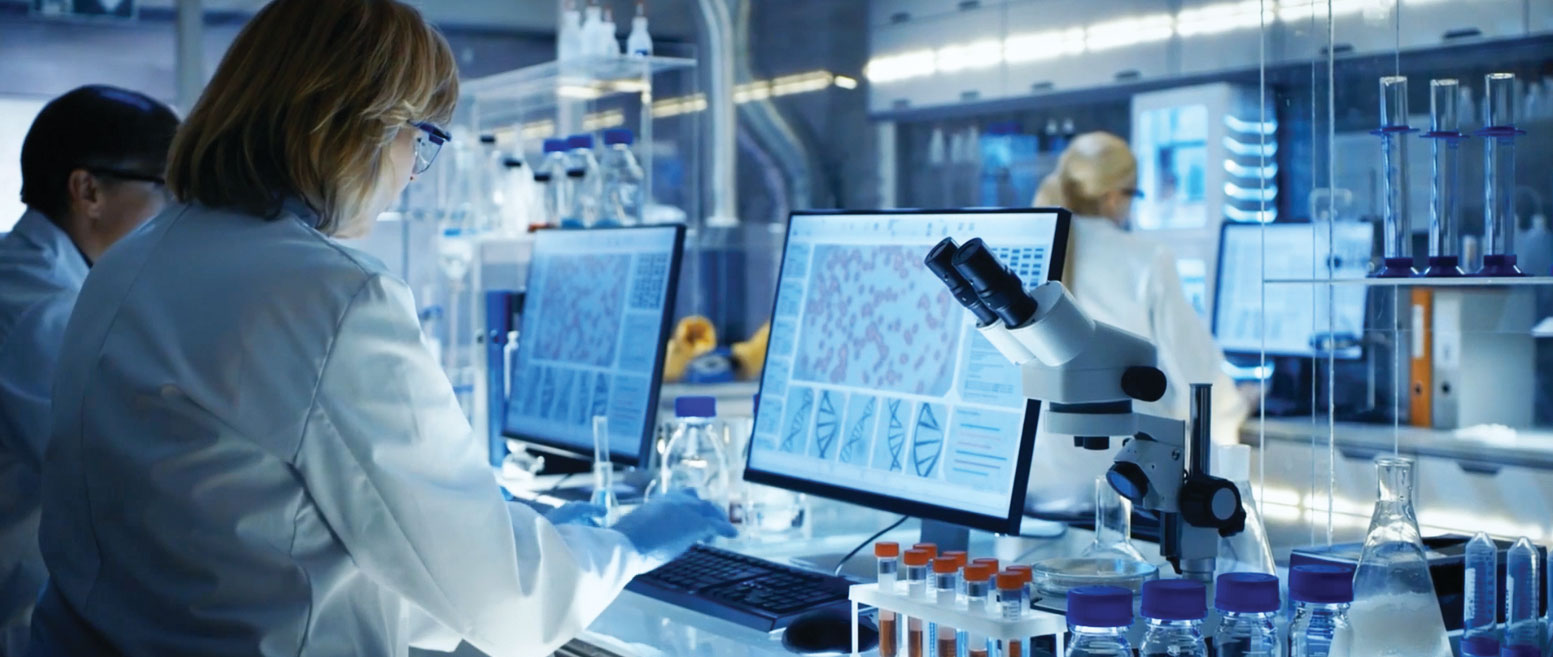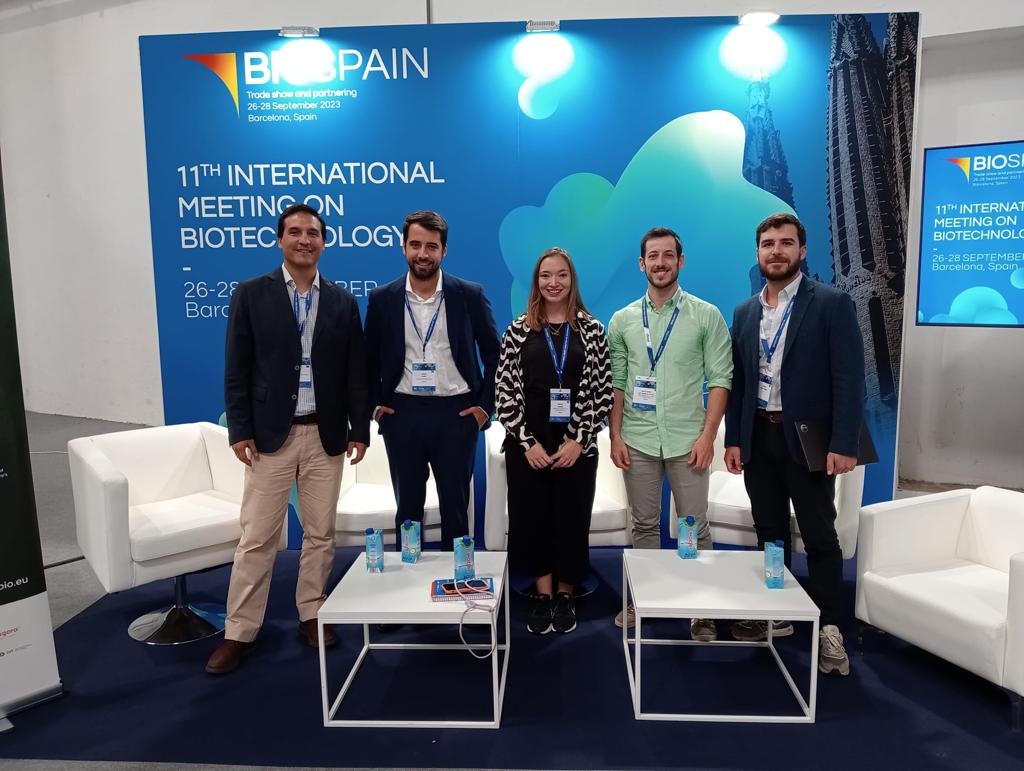Last week, several representatives of the OLIGOFASTX consortium partners attended BioSpain 2023, which has been held from September 26 to 28 at the Fira de Barcelona – Montjuïc, organized by the Spanish Association of Biocompanies (AseBio) in collaboration with Biocat, the Barcelona City Council and the Government of Catalonia.
The event has closed a balance of real record in this edition: more than 60 round tables, 220 exhibitors from around the world, more than 5,000 one to one meetings, more than 30 presentations of startups made to investors and 2,100 attendees.
During the three days of the congress it has been possible to position the biotechnology sector as the driving force of the new health model and a key element in achieving strategic autonomy for Spain and Europe on subjects such as the economy, health, sustainable food and the green industrial transition.
During the event, a number of topics took centre stage. Among others, precision medicine, strategies for the development of therapies using RNA and oligonucleotides (such as those we are working on in OLIGOFASTX), how to bring to patients solutions to diseases still without therapy or solution or how to improve processes by attracting talent and public and private funding.
And, of course, it has highlighted the absolute record growth of the biotech sector in recent years, significantly boosted since the COVID-19 pandemic.
Ion Arocena, director general of Asebio, reviewed the evolution of biotechnology in our country, from 50 companies in 2002 to more than 800 today, with the existence of specialised investment funds, which in 17 years have mobilised more than 1,200 million euros. The turning point, for Arocena, was in 2008, when Biospain’s international vocation began.
Biotechnology sets the pace for the medicine of the future
There are currently more than 1,500 molecules in clinical trials as a result of advances in the field of biotechnology. With more than 300 approved biotech medicines, for around 250 indications, and a thousand molecules in various stages of research around the world to find new therapeutic active ingredients or find new applications for existing ones to reach patients, biotechnology is setting the pace for the medicine of the future.

It can take 12 to 15 years from the conception of the original idea to the launch of a new drug on the market. A complex process that, in most cases, involves a substantial financial investment. The global health crisis caused by covid-19 has highlighted the importance of joining forces to reduce some of the processes, and how vital it is to have the investment to develop ideas that can provide answers to diseases that currently have no treatment or cure.
The new medicines often fail to deliver for two reasons: they do not work properly or they are unsafe. For this reason, it is of vital importance to identify and validate the intended target correctly. A job in which new technologies are enabling significant advances thanks to the increased data available.
Lucía Díaz, Head of Drug Discovery at Nostrum Biodiscovery, partner of OLIGOFASTX: “Our most recent experience is that we are facing a paradigm shift in Drug Discovery. Today, given a target, we can find a large diversity of very efficient candidates (hits) within a few weeks. Moreover, we can optimise them to quasi-drugs within a few months. What used to take 2 or 3 years and had little efficiency, can now be done in 6 months with great results. And all thanks to (super)computing.”
Bioeconomy for the future of the Planet
One of the central themes of many of the round tables focused on the bioeconomy, as the sector is not only researching diseases, but the field of application is becoming increasingly broad.
At BIOSPAIN 2023 it became clear that, in a context of limited raw materials, pollution and climate change, the genomic editing techniques, such as CRISPR, can help solve the increasingly complex and growing challenges facing agriculture and the planet.
In the session ‘Shaping Bioeconomy in Europe’ the functioning of the bioeconomy sector has been analysed by the Project Manager of Nostrum Biodiscovery, Sergi Rodàalso an OLIGOFASTX consortium member, who explained that the sector uses biological resources, processes and principles to provide sustainable solutions in a variety of sectors; The aim, he said, is to minimise environmental impact and maximise resource efficiency through the use of renewable biomass.

“The bioeconomy is undergoing a rapid transformation thanks to revolutionary advances in biotechnology and sustainable practices. Cutting-edge technologies such as gene editing and synthetic biology are enabling the development of new biological products and processes. In addition, advances in renewable energy sources and waste management are driving the shift towards a circular bioeconomy model. These innovations hold immense potential to reduce our dependence on fossil fuels, minimise waste and promote a greener, more sustainable future. And finally, the potential for innovation and data processing offered by AI and supercomputing techniques will accelerate advances, making the most of new biotechnologies,” concluded Rodà.
We are proud to develop our activity in a sector context where growth is not only the protagonist, but is expected to double or triple in the coming years. A sector that is entirely focused on improving the quality of life of people and the planet from every possible approach.
OLIGOFASTX develops its main activity in this context and will continue to do so in the coming years, providing from the consortium of partners our grain of sand to contribute to the expansion of a key sector for the future of humanity.
Sources:
Own elaboration in situ at BioSpain 2023
https://www.phmk.es/i-d/biospain-2023-cierra-su-undecima-edicion-con-cifras-record-de-participacion

 Español
Español
